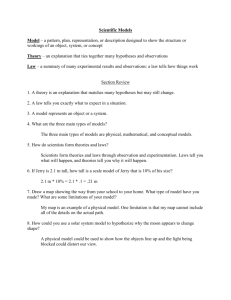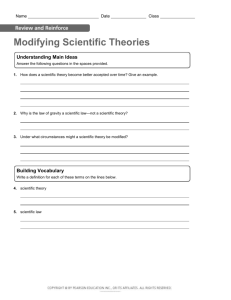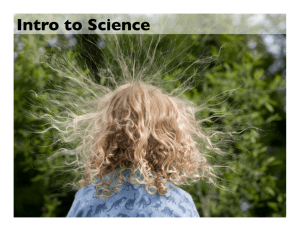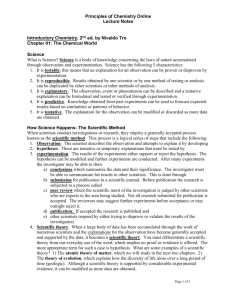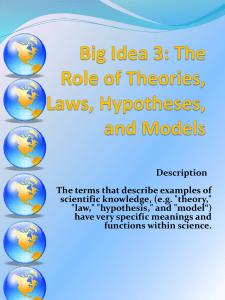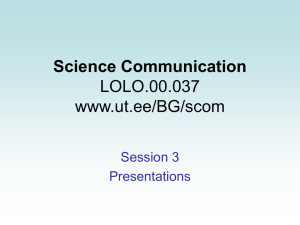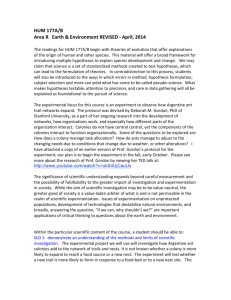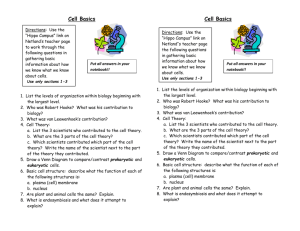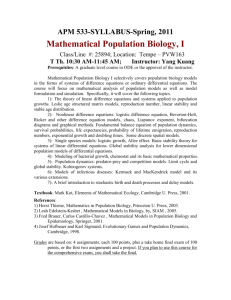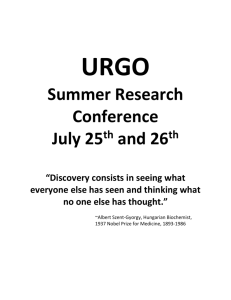Scientific Theory vs. Law: Lesson Plan & Activity
advertisement
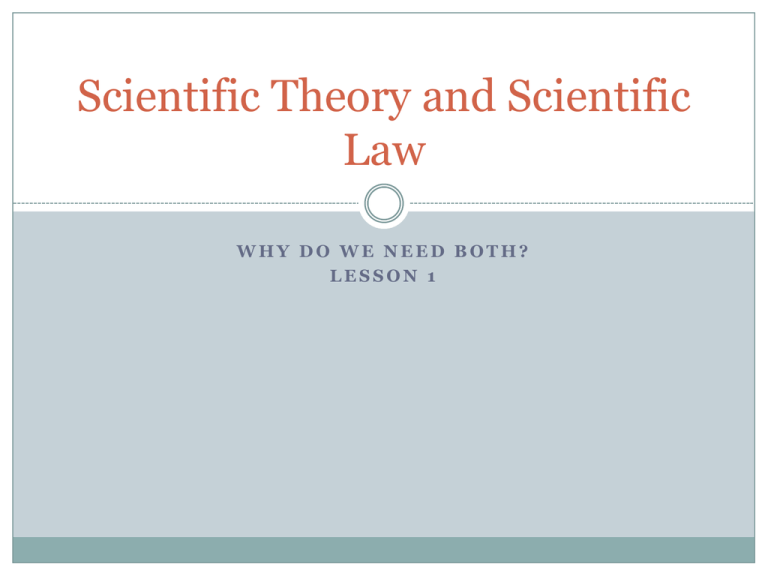
Scientific Theory and Scientific Law WHY DO WE NEED BOTH? LESSON 1 Instructions for use of Scientific Theory and Scientific Law Activity Objective: The main goal of this activity is to clarify to students that science terms often have different meanings than their meanings in general conversation. In science, a theory is NOT a stop on the way to becoming a law. This is a very common misconception outside the scientific community. Time needed : 50 minute period Procedure: This activity will work well when teaching the scientific method in any science course. After introducing the steps of the scientific method (or reacquainting as the case may be), pass out the blank Venn diagram on Scientific Theory and Scientific Law. 1) Review the premise of a Venn diagram, explaining that statements that only apply to a Scientific Theory should be listed in the far left circle, statements that only apply to a Scientific Law should be listed in the far right circle, and statements that are true for both Scientific Theories and Scientific Laws should be listed in the center area on the diagram. For a younger group of students, it would be helpful to tell students that each statement will be used only once and that there are 5 statements that will be common to both Scientific Theories and Scientific Laws. 2) Have students take their sheet with them to the computer lab and let them “Google” resources to help them complete their diagram. It should only take students 10-15 minutes to find information they need to complete the diagram. 3) When back in the classroom, allow students 5 minutes to share with their “neighbors” why they put statements where they did and allow them to make changes if they become convinced by their peer’s arguments. 4) Teach the difference between these two terms using the attached PPT file then pass out a blank diagram for them to complete while you model the correct diagram for them (on the board, overhead…) Assessment: For homework, have students write a complete paragraph comparing and contrasting a Scientific Theory and Scientific Law. Scientific Theory and Scientific Law Explains how nature works Describes what nature does under certain conditions (usually with a mathematical formula) Biology has more of these Scientific Theory Both Theory and Law Chemistry and Physics have more of these Scientific Law Tested hypothesis Supported by large amount of data Helps unify a field of study Widely accepted by a vast majority (if not all) scientists within a discipline Can be modified if even 1 peerreviewed experiment produces data showing disagreement Scientific Theory and Scientific Law (Answer Key) Scientific Theory Both Theory and Law Scientific Law 1) Tested hypothesis 1) Biology has more of these 2) Supported by large amount of data 3) Helps unify a field of study 2) Explains how nature works 4) Can be modified if even 1 peer-reviewed experiment produces data showing disagreement 5) Widely accepted by a vast majority (if not all) scientists within a discipline 1) Chemistry and Physics have more of these 2) Describes what nature does under certain conditions (usually with a mathematical formula) Scientific Theory and Scientific Law Scientific Theory Both Theory and Law Scientific Law Scientific Theory and Scientific Law WHY DO WE NEED BOTH? Scientific Method Organized and careful method that scientists use figure things out about nature Experiment process never really ends The conclusion (whether it ends in a description of how or a statement of what) can be changed when further experimentation shows changes should be made Scientific Theory and Scientific Law The field of biology has more scientific theories that result from research. The fields of chemistry and physics have more scientific laws that result from research. Scientific Theory and Scientific Law Scientific Theory usually describes a phenomenon seen in nature. Scientific Law usually explains how a process works under a given set of conditions with a mathematical formula. BOTH are proven true through continuous experimentation! Question: Mass can come from energy and energy from mass (E= mc2) The speed of light in a vacuum is constant and an absolute physical boundary for motion Is this a scientific Is this a scientific theory or a scientific law? Scientific LAW theory or a scientific law? Part of the THEORY of relativity Question: Is a scientific theory or a scientific law more correct? Trick question! Both are equally proven to be true through continuous experimentation.
